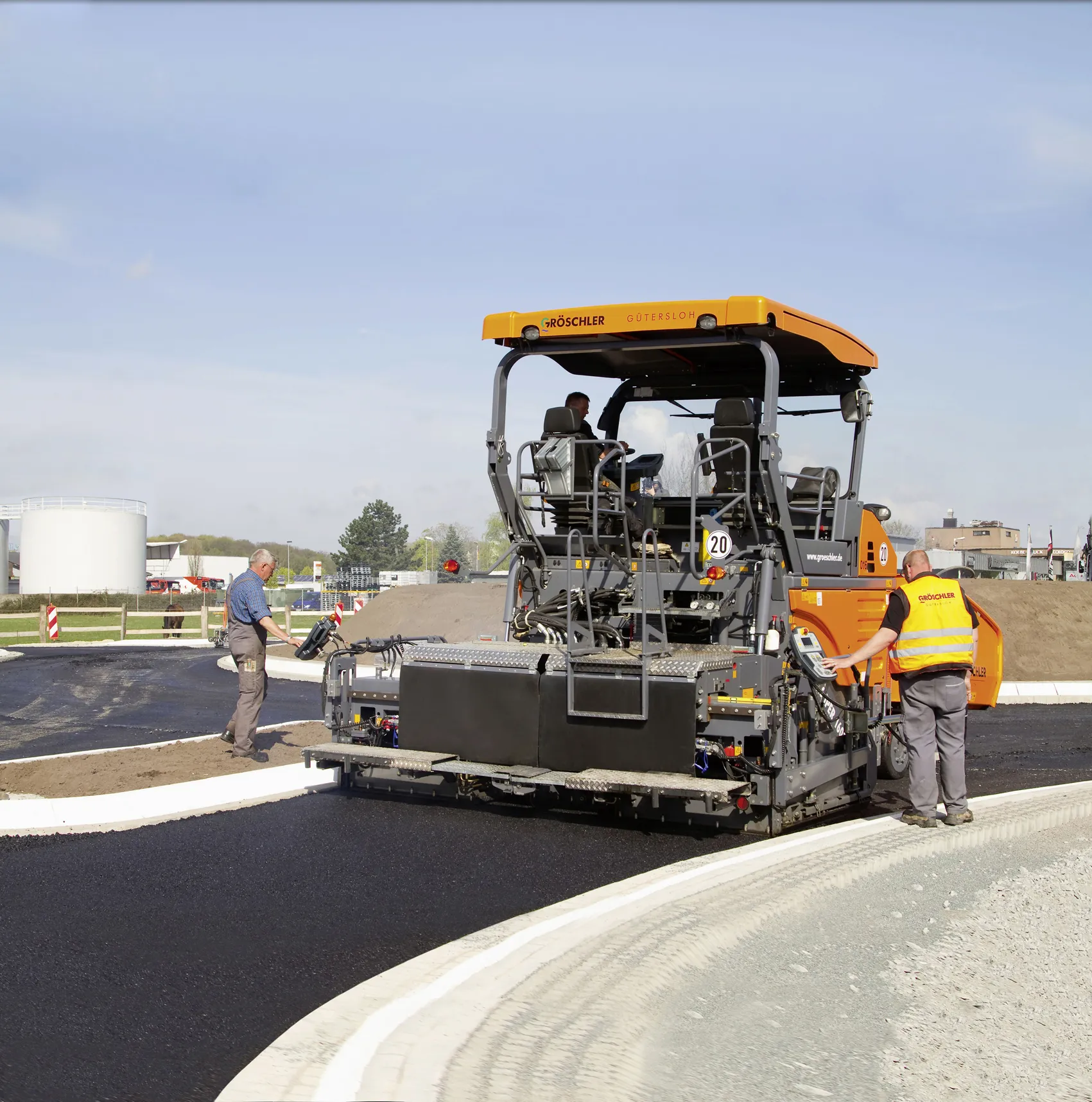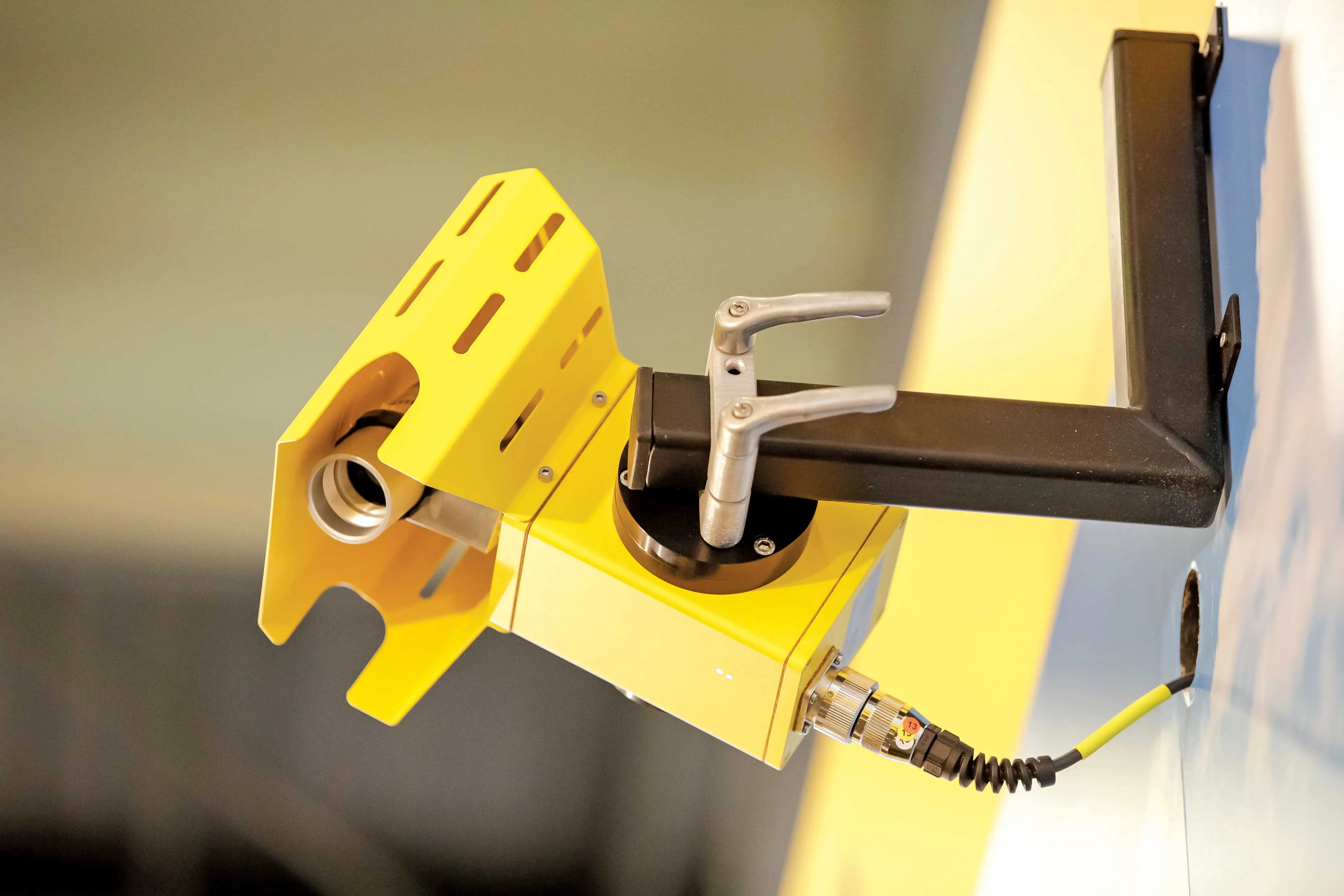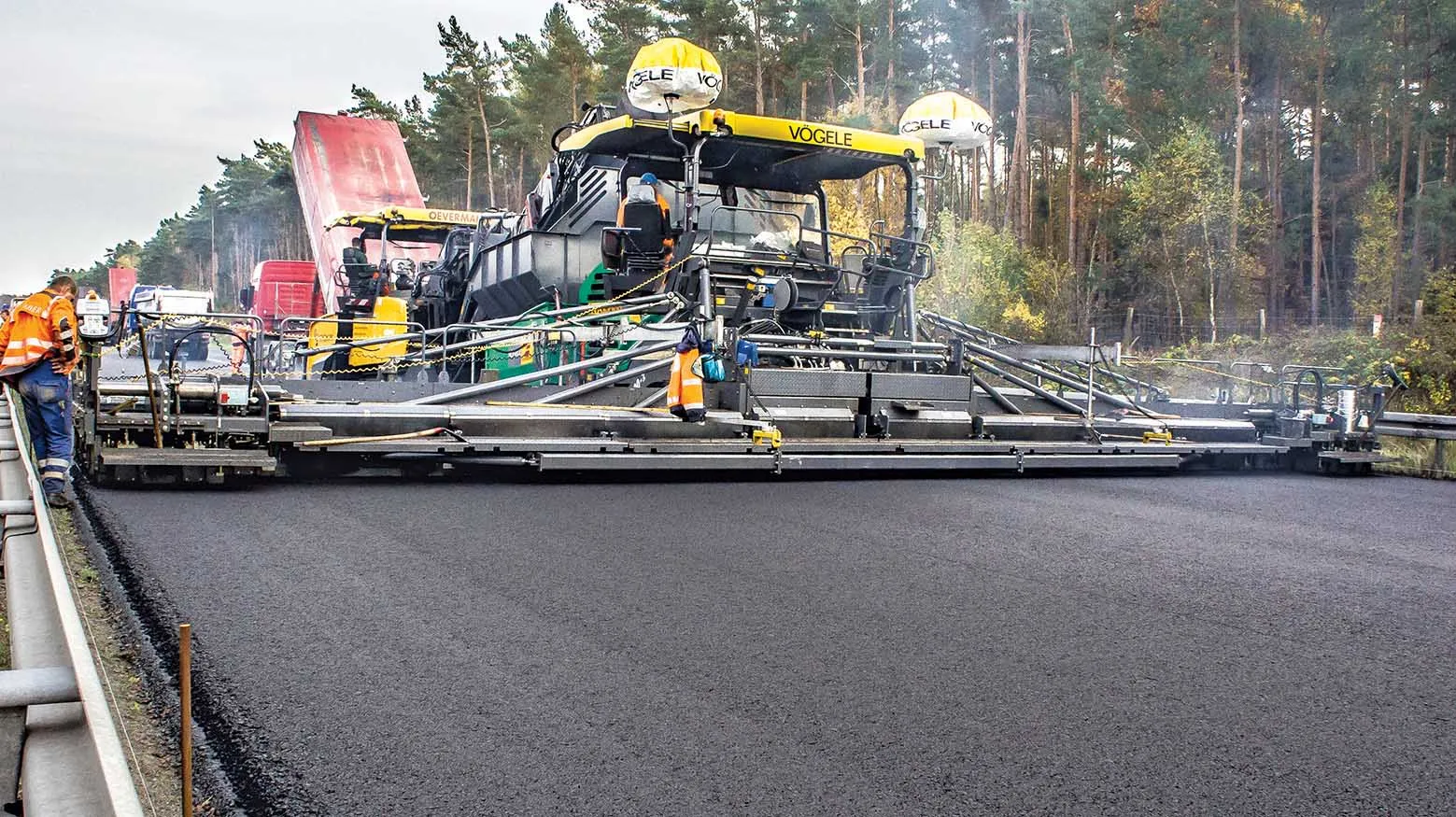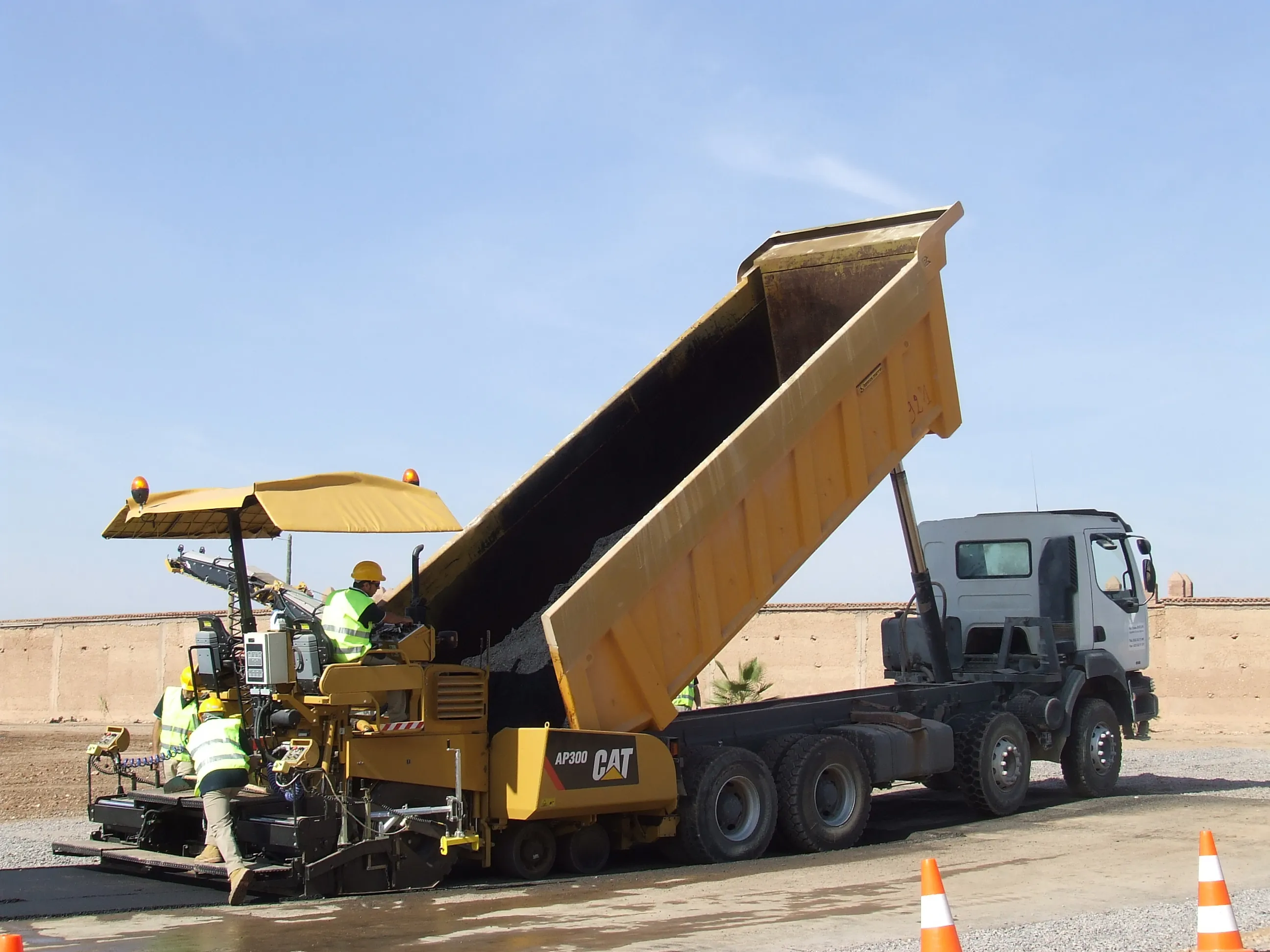A north German paving contractor is now relying on Vögele pavers for all of its operation. Gröschler is a group of four construction companies in northern Germany. The jobs Gröschler undertake for their customers range from narrow cycle paths to wide highways and it now has six Vögele pavers in its fleet, the tracked SUPER 1300-2, SUPER 1600-2, SUPER 1800-2 and SUPER 1900-2 pavers, as well as two wheeled SUPER 1603-2 and SUPER 1803-2 pavers. One job took the Gröschler team to Versmold, 30km west of Bielefel
February 28, 2012
Read time: 2 mins

A north German paving contractor is now relying on 1194 Vögele pavers for all of its operation. Gröschler is a group of four construction companies in northern Germany.
The jobs Gröschler undertake for their customers range from narrow cycle paths to wide highways and it now has six Vögele pavers in its fleet, the tracked SUPER 1300-2, SUPER 1600-2, SUPER 1800-2 and SUPER 1900-2 pavers, as well as two wheeled SUPER 1603-2 and SUPER 1803-2 pavers. One job took the Gröschler team to Versmold, 30km west of Bielefeld.
A major location for the food processing industry, Versmold is currently suffering the effects of heavy truck and car traffic.
A bypass is under construction now and as part of this project Gröschler was to build a roundabout with the new SUPER 1603-2 before surfacing the associated cycle path with a SUPER 1300-2. For the roundabout, the SUPER 1603-2 was equipped with an AB500-2 extending screed in TV version. The paver placed base course, binder course and wearing course in widths varying from 4-10m. The machine’s small turning radius of just 6.5m (outside) made it good to manoeuvre and allowed the team to build the roundabout accurately.
The compact tracked SUPER 1300-2 surfaced the cycle path with an AB340 extending screed in TV version in widths of 2-3m. Both pavers were fitted with multi-cell sonic sensors for grade and slope control. The requirements in terms of surface accuracy were tight; a deviation of no more than 4mm was permitted in both longitudinal and transverse directions over a distance of 4m. The quality targets were met easily however.
To ensure the paving crews were familiar with the new machines, Vögele provided training at its headquarters. The pavers are all equipped with the ErgoPlus control system, which is said to be intuitive to use and made learning and use much easier.
The jobs Gröschler undertake for their customers range from narrow cycle paths to wide highways and it now has six Vögele pavers in its fleet, the tracked SUPER 1300-2, SUPER 1600-2, SUPER 1800-2 and SUPER 1900-2 pavers, as well as two wheeled SUPER 1603-2 and SUPER 1803-2 pavers. One job took the Gröschler team to Versmold, 30km west of Bielefeld.
A major location for the food processing industry, Versmold is currently suffering the effects of heavy truck and car traffic.
A bypass is under construction now and as part of this project Gröschler was to build a roundabout with the new SUPER 1603-2 before surfacing the associated cycle path with a SUPER 1300-2. For the roundabout, the SUPER 1603-2 was equipped with an AB500-2 extending screed in TV version. The paver placed base course, binder course and wearing course in widths varying from 4-10m. The machine’s small turning radius of just 6.5m (outside) made it good to manoeuvre and allowed the team to build the roundabout accurately.
The compact tracked SUPER 1300-2 surfaced the cycle path with an AB340 extending screed in TV version in widths of 2-3m. Both pavers were fitted with multi-cell sonic sensors for grade and slope control. The requirements in terms of surface accuracy were tight; a deviation of no more than 4mm was permitted in both longitudinal and transverse directions over a distance of 4m. The quality targets were met easily however.
To ensure the paving crews were familiar with the new machines, Vögele provided training at its headquarters. The pavers are all equipped with the ErgoPlus control system, which is said to be intuitive to use and made learning and use much easier.








